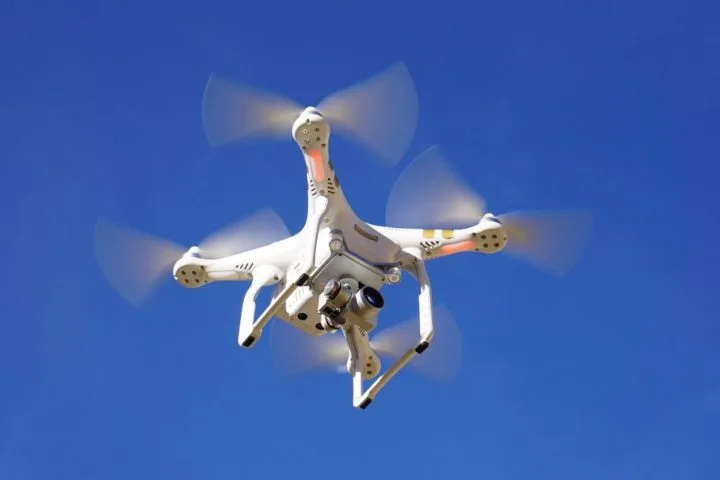Guide Rail Roll Forming Machine Guide Rail,Elevator Guide Rail Equipment,Elevator Guide Profiles,Elevator Guide Rail Section Huai'an Senyu Intelligent Technology Co., LTD , https://www.jshasyzn.com When using drones, there are several key GDPR principles to follow to maintain compliance:
1. **Understand Personal Data and Data Rights**
Personal data refers to any information that can identify an individual, including photos, videos, and audio captured by drones. Individuals also have rights regarding their data, such as the right to access, correct, or request the deletion of their information.
2. **Minimize Data Collection and Storage**
To stay compliant, it's best to collect only what's necessary. Avoid flying over crowds, anonymize sensitive details like faces or license plates, and limit the amount of identifying information you gather.
3. **Implement Data Protection Processes**
Ensure that all data collected by drones is stored securely, using encryption, strong passwords, and regular backups. Access should be restricted to authorized personnel only.
4. **Have an Official Privacy Policy**
A clear and accessible privacy policy on your website helps build trust with customers and outlines how you handle personal data. It should explain what data is collected, how it is used, and how individuals can exercise their rights.
GDPR compliance isn’t just about following the law—it’s also about building trust with your customers and improving your business practices. Here are some benefits of staying compliant:
- **Improves Customer Confidence**
Demonstrating a commitment to data protection enhances your reputation and shows customers that their privacy is a priority.
- **Reduces Maintenance Costs**
By maintaining clean and up-to-date data, you can reduce storage costs and streamline operations.
- **Aligns with Evolving Technology**
GDPR encourages better security practices, helping businesses adopt new technologies like cloud computing and IoT while protecting user data.
For industries like oil and gas, maintaining GDPR compliance requires more than just one-time efforts. Ongoing audits, appointing a Data Protection Officer, training staff, and managing third-party risks are all essential steps. Reporting breaches promptly and ensuring age verification for minors are also critical components of a robust compliance strategy.
Ultimately, GDPR compliance is not just a legal obligation—it's a strategic advantage that fosters trust, improves efficiency, and ensures long-term success in an increasingly data-driven world.
When using drones, there are several key GDPR principles to follow to maintain compliance:
1. **Understand Personal Data and Data Rights**
Personal data refers to any information that can identify an individual, including photos, videos, and audio captured by drones. Individuals also have rights regarding their data, such as the right to access, correct, or request the deletion of their information.
2. **Minimize Data Collection and Storage**
To stay compliant, it's best to collect only what's necessary. Avoid flying over crowds, anonymize sensitive details like faces or license plates, and limit the amount of identifying information you gather.
3. **Implement Data Protection Processes**
Ensure that all data collected by drones is stored securely, using encryption, strong passwords, and regular backups. Access should be restricted to authorized personnel only.
4. **Have an Official Privacy Policy**
A clear and accessible privacy policy on your website helps build trust with customers and outlines how you handle personal data. It should explain what data is collected, how it is used, and how individuals can exercise their rights.
GDPR compliance isn’t just about following the law—it’s also about building trust with your customers and improving your business practices. Here are some benefits of staying compliant:
- **Improves Customer Confidence**
Demonstrating a commitment to data protection enhances your reputation and shows customers that their privacy is a priority.
- **Reduces Maintenance Costs**
By maintaining clean and up-to-date data, you can reduce storage costs and streamline operations.
- **Aligns with Evolving Technology**
GDPR encourages better security practices, helping businesses adopt new technologies like cloud computing and IoT while protecting user data.
For industries like oil and gas, maintaining GDPR compliance requires more than just one-time efforts. Ongoing audits, appointing a Data Protection Officer, training staff, and managing third-party risks are all essential steps. Reporting breaches promptly and ensuring age verification for minors are also critical components of a robust compliance strategy.
Ultimately, GDPR compliance is not just a legal obligation—it's a strategic advantage that fosters trust, improves efficiency, and ensures long-term success in an increasingly data-driven world.
The use of drones in commercial settings has experienced a significant surge in recent years. From inspections—both internal and external—to surveillance, agriculture, and delivery services, drones have become an essential tool across various industries.
With this rapid growth comes the need for increased awareness of privacy concerns. As with any business activity, understanding and adhering to data protection laws is crucial, especially when using drones that may capture personal information.
One of the most stringent data protection regulations is the General Data Protection Regulation (GDPR), which applies to all businesses operating within the European Union. While specific rules may vary by region, it’s vital to understand how GDPR affects your operations and how to ensure compliance.